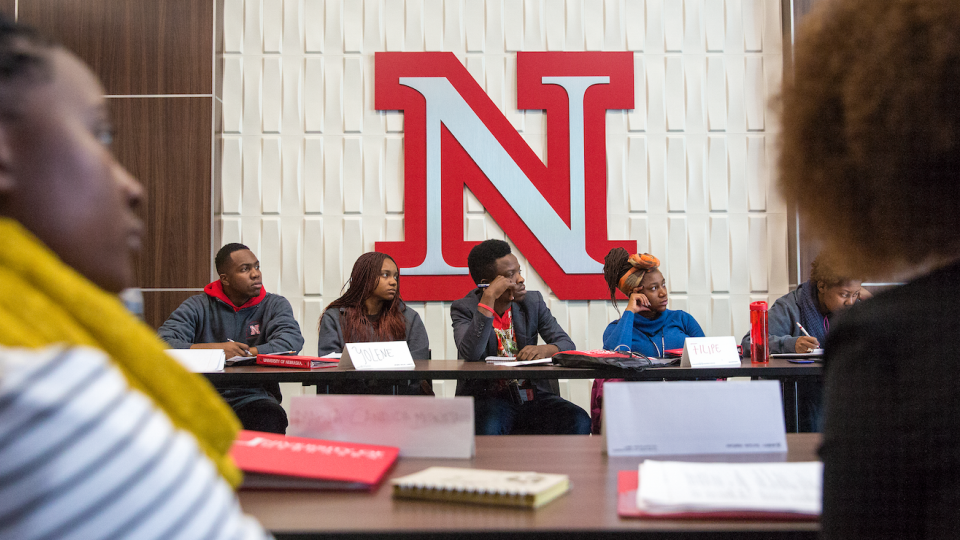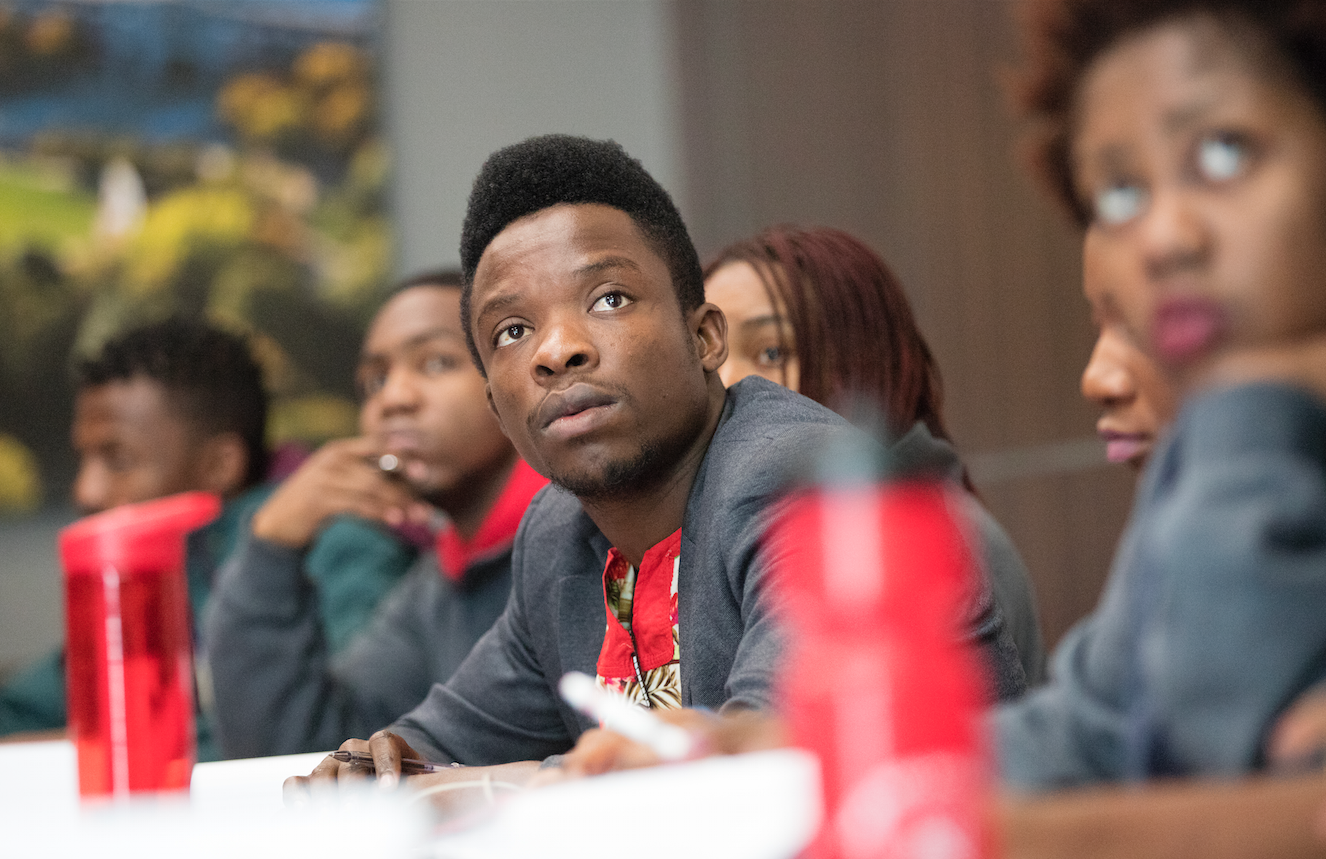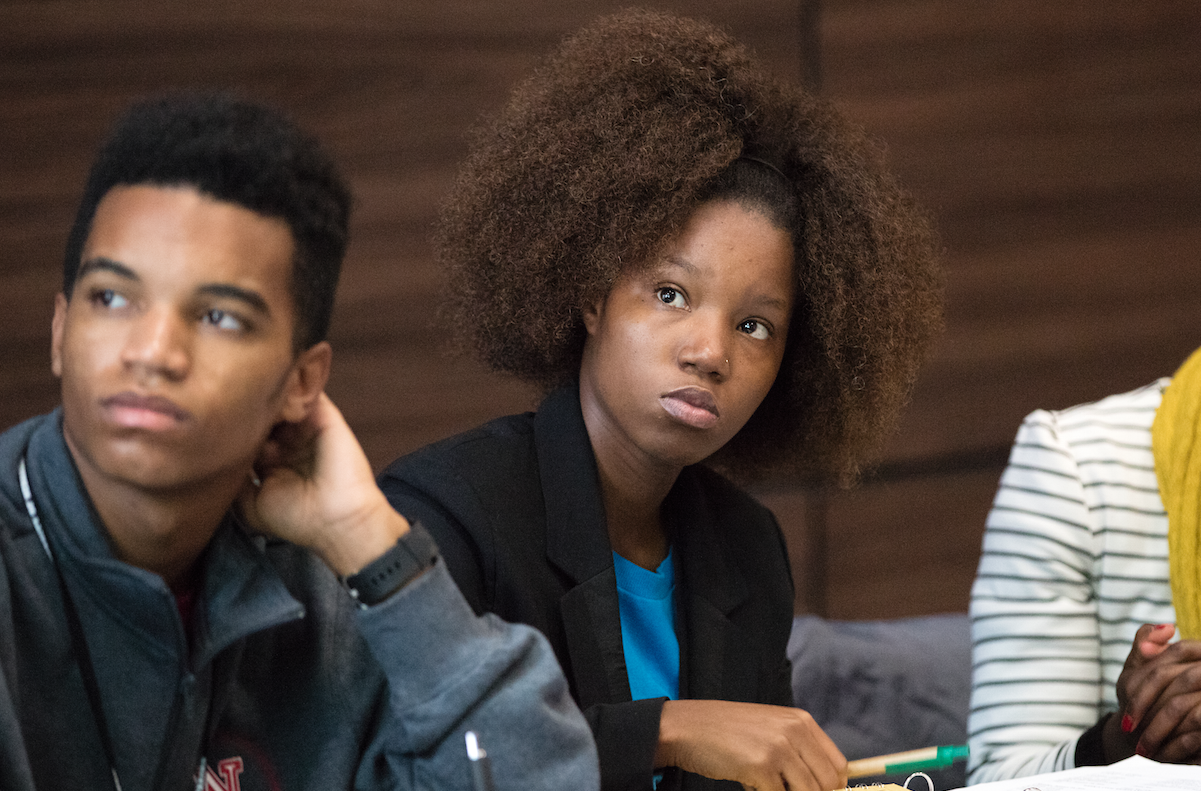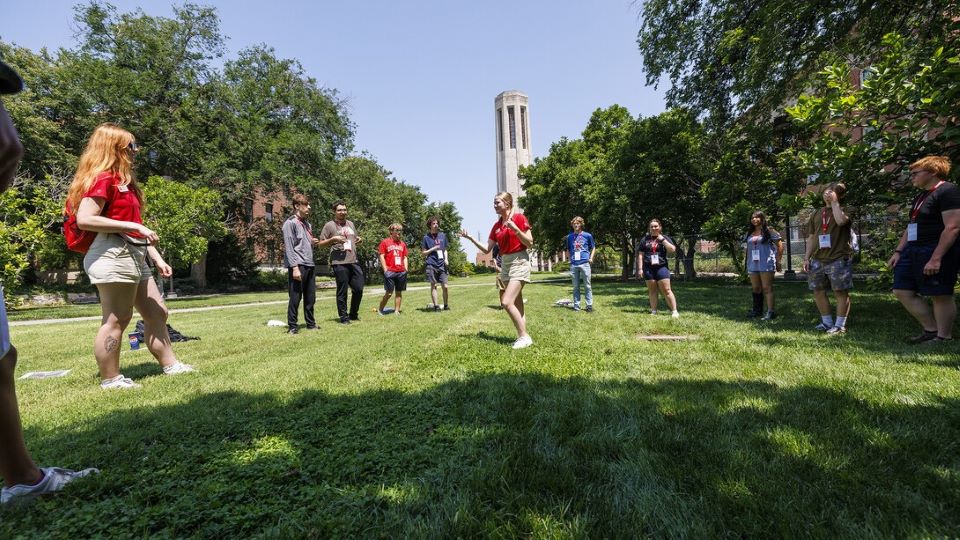
America, the land of the free -- and, for a group of visiting African students, the land of surprises.
As the 20 students touched down in Omaha in January, they held any number of preconceptions of the United States, its people and its government. But after spending the last month in classes with University of Nebraska-Lincoln professors through the Institute of Civic Engagement, many have been altered or even eradicated.
“I’ve said to the students, ‘We’re not here to convert you in any way toward American democracy, toward our understanding of human rights, our understanding of sexual orientation issues,’” said Patrice McMahon, associate professor of political science and director of the institute. “That’s not our goal. Our goal is to expose them to different ideas and to engage in really healthy discussion. I told them we don’t all have to agree, but we all have to be open-minded.”
This is the third year that African students have been embedded at UNL through the United States Institute on Civic Engagement. This year, they represent nearly a dozen African countries. The institute is sponsored by the U.S. Department of State through a three-year grant.
Students attend classes in the mornings and spend afternoons with community service and leadership classes and exercises. The curriculum is designed on recommendations from the state department and covers democracy, human rights, civil rights and civic engagement.
McMahon said a recent lecture on race in the United States led to discussions that demonstrated the students' diverse opinions about the United States. That diversity has transferred to all the classes, which have focused on topics such as Native history and lesbian, gay, bisexual and transgender rights.
“Some students said to me, ‘Wow, I never thought I would hear things like this,’ but I kept reinforcing that we’re not trying to promote our country,” McMahon said. “The students brought with them a lot of mythologies about the United States -- about race, about discrimination, and now that they’re here, they saw and heard Americans being really honest about it.”
Tafadzwat M., an aspiring journalist from Zimbabwe, said he’s been surprised by many of the things he’s learning about the government and political systems here.
“It was very interesting to learn about political gerrymandering in the United States,” he said. “I thought it was just a problem in Africa, but it’s a problem in the United States, too. Despite the fact that the U.S. is a very old democracy, it still has problems. You’d think that an old democracy would be flawless. That was my perception, but there are issues here, too.”
The weather also has taken their collective breath away -- sometimes, quite literally.
“The snow is beautiful, but it is really cold. You need to go out and explore, but you just want to stay indoors,” Hazel C., a student from Zimbabwe, said.
The students arrived in Lincoln on Jan. 9 and will depart for Alabama on Feb. 7, where they will tour various historical sites related to the Civil Rights movement, including the Edmund Pettit Bridge in Selma. Then it is off to Washington, D.C., to meet with Nebraska congressional representatives and have a debriefing at the state department.
Students also were able to travel to Omaha to see President Obama speak during the president's January visit and three will attend and observe an Iowa Caucus on Feb. 1.
Linda Major, assistant to the vice chancellor for student affairs, and Damien Pfister, assistant professor of communication studies, are co-directing the institute with McMahon. Professors from different disciplines spend time teaching the international students.
The Study of the U.S. Institutes are designed and funded by the U.S. Department of State’s Bureau of Educational and Cultural Affairs. Participants are among more than 50,000 people participating in U.S. Department of State exchange programs each year.
For more than 60 years, the bureau has funded and supported programs that seek to promote mutual understanding between the people of the United States and the people of other countries. More information about this and other exchange programs is available at exchanges.state.gov.


